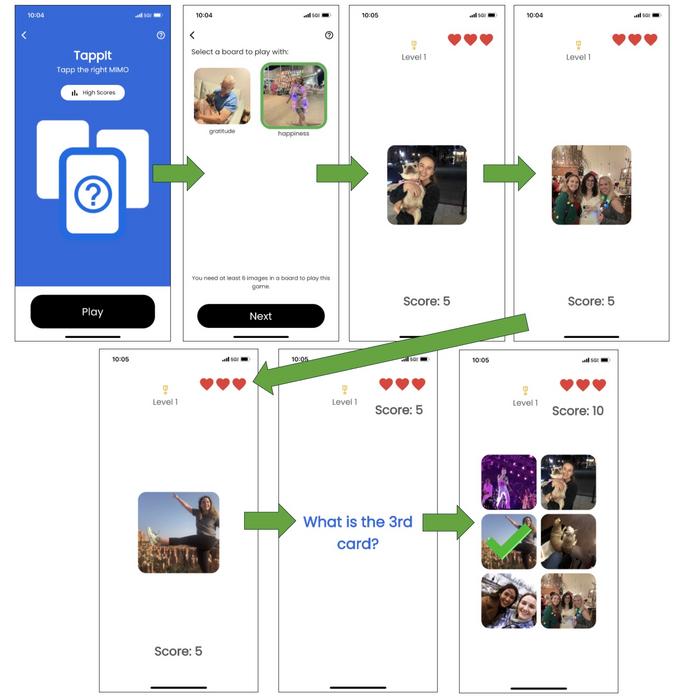In an era where technology is increasingly intertwined with our daily lives, researchers at the University of California, Riverside, have embarked on a groundbreaking journey that redefines the potential of self-improvement tools. Their recently unveiled study explores whether a digital platform can not only bolster self-image among employees but also facilitate a shift in mindset—an unprecedented area of investigation in behavioral psychology. The core of this study is a smartphone application, aptly named MindTAPP, designed with one significant goal: to transform how users perceive their professional selves by harnessing the power of positive affirmations.
MindTAPP operates on a deceptively simple premise. Users are invited to upload images of themselves, which the app then pairs with empowering descriptors such as "hardworking," "productive," and "reliable." This method, rooted in associative conditioning, capitalizes on the longstanding psychological principle that repetitive pairing of visual and verbal stimuli can modify self-perception and enhance self-esteem. In a world dominated by social media, the participants found themselves engaging with the app much like they would with any photo-sharing application, albeit with a profoundly different purpose.
The implications of training one’s mindset using this digital tool are particularly compelling. The researchers conducted their study with a group of 159 individuals, primarily college students, who used the app without being fully aware of its psychological objectives. Before and after their interaction with MindTAPP, the participants filled out comprehensive surveys that assessed their self-perceptions regarding their workplace capabilities. The results indicated a measurable shift: users reported a stronger sense of self-awareness regarding their professional attributes, alongside an enhanced belief in their ability to effect change in their work environments.
Over time, these small interactions culminated in a significant transformation in how the users viewed themselves professionally. Participants who routinely engaged with the app experienced an increased sense of self-efficacy. This concept—a psychological term that speaks to one’s belief in their ability to execute actions required to manage prospective situations—was notably influenced through the simple act of endorsing oneself repeatedly.
Yet, while the initial impacts of the app are promising, the researchers noted a caveat. Without regular engagement with the app, the perceptual shifts experienced by users could diminish rapidly, often within just 24 hours. This phenomenon raises critical questions regarding the sustainability of such positive changes over time. It highlights the necessity for ongoing interaction with the app to foster enduring improvements in workplace identity and self-assessment.
To optimize the utility of MindTAPP, the researchers have filed a patent, emphasizing their commitment to making the application freely available to the public. This open-access approach is emblematic of their broader goal—to democratize tools for personal development and challenge the traditional paradigms of employee training. It opens up new avenues in employee development that target not just skills and knowledge, but directly address the belief systems that underpin motivation and workplace performance.
The application of MindTAPP is especially timely, considering the evolving landscape of professional life where digital tools increasingly mediate experiences ranging from coaching to personal productivity. As such, belief-centered training is drawing a growing interest within corporate structures. What distinguishes MindTAPP from other interventions is its user-directed nature, empowering individuals to take charge of their own mindset development without the need for a guiding instructor or facilitator.
The study’s findings resonate beyond the specific context of workplace productivity. A well-established link exists between mindset and various professional behaviors, including the propensity to speak up, advocate for oneself, and pursue advancement opportunities. In a competitive environment, where self-perception critically influences the trajectory of career opportunities, this ability to subtly reshape one’s self-image through a simple digital tool can have far-reaching implications.
As Thomas Sy, the senior author of the study and a professor of psychology at UCR, articulates, the significance of this research extends to the foundational aspects of how people define their professional identities. By demonstrating that individuals can intentionally alter their self-perceptions using a digital interface, this study taps into an underexplored frontier of personal development that blends psychology with technology.
Sy also metaphorically positions the user as the "architect" of their own mindset, an empowering notion that speaks directly to the self-driven culture of today’s workforce. This approach promotes autonomy and personal responsibility, encouraging individuals to actively engage in their own psychological development rather than rely solely on external validation or traditional training methods.
This research opens a new chapter in understanding how technology can influence human behavior and development. While the app provides immediate reinforcement for positive self-beliefs, ongoing research will be essential to ascertain how long these effects can last and what practices may enhance durability. As organizations strive to cultivate positive workplace cultures, integrating tools like MindTAPP could represent a paradigm shift in how we think about self-improvement and personal development.
In conclusion, the MindTAPP initiative captivates the essence of modern psychological training and self-management in the digital age. The study presents an innovative intersection of technology and psychology, highlighting how a simple smartphone application could empower users to reshape their professional identities and boost their confidence. This highlights an exciting potential for a future where belief systems can be actively cultivated, ultimately paving the way for more resilient and effective workforce dynamics.
Subject of Research: The impact of a smartphone app on workplace self-perception and belief systems.
Article Title: The conditioned follower: Enhancing followership self-expectations via Galatea training.
News Publication Date: 24-Jan-2025
Web References: ScienceDirect Article
References: DOI 10.1016/j.chbr.2025.100597
Image Credits: Thomas Sy/UCR
Keywords: Psychological science, Self concept, Smartphones, Human behavior, Motivation, Self perception, Mental images, Social interaction.




